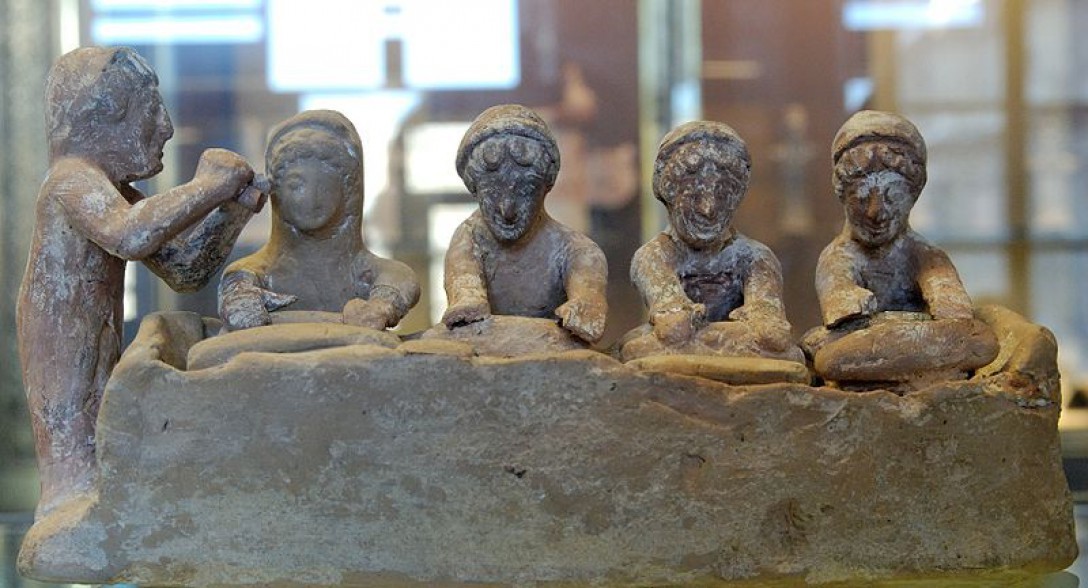Who are these women?
Women who grind, singing the monotonous strain:
‘alei, myla, alei…
grind, mill, grind
even Pittacus ground
great Mytilene’s king…” (1)
Who are these women who knead…
Tanagra, 500-475 a. C. National Archaeological Museum of Athens, n°27 (Wikimedia commons)
make bread…..
Female workers making bread and a flute player sets the work pace. Boeotian terracotta figurine, 525–475 BC, from Thebes. Louvre Museum. (Photo: Marie-Lan Nguyen. Wikimedia commons.)
bake bread….

Female baker taking bread from the oven. Terracotta figurine, early 5th century BC. From Tanagra. Louvre. (Photo: Marie-Lan Nguyen, Wikimedia commons)
sell bread?
Who were those women who ‘from wheat, by macerating it, stripping
it of its hull, grinding it all down, sifting, toasting, and baking
it, they formed bread’? (2)
Of course, the transformation of the free movement into the circularmovement and then into a back and forth motion and the transition from the mortar and pestle to the saddle quern, and from it to the hopper–rubber and to the round quern, reduced the labour. However, grinding remained hard work. Now, imagine how many hours one female member of each ancient household of 5-10 persons did spend in cracking cereals and making flour. It is not surprising that Mycenaean and Minoan female skeletons suffered from arthritis because of spending considerable periods grinding grain.
Farmers, lower class women and women slaves had a hard life, though it could not compare with the life of slaves who crushed grains and grinded flour for palaces and bakery shops.
In Homer’s Odyssey there are some verses expressing such pity for a slave grinder that made Samuel Butler (1897) to suggest that Odyssey had been written by a woman:
‘And a woman, grinding at the mill, uttered a word of omen from within the house hard by, where the mills of the shepherd of the people were set. At these mills twelve women in all were wont to ply their tasks, making meal of barley and of wheat, the marrow of men. Now the others were sleeping, for they had ground their wheat, but she alone had not yet ceased, for she was the weakest of all. She now stopped her mill and spoke a word, a sign for her master: “Father Zeus, who art lord over gods and men, verily loud hast thou thundered from the starry sky, yet nowhere is there any cloud: surely this is a sign that thou art showing to some man. Fulfil now even for wretched me the word that I shall speak. May the wooers this day for the last and latest time hold their glad feast in the halls of Odysseus. They that have loosened my limbs with bitter labour, as I made them barley meal, may they now sup their last.” (Book XX, 112-119, transl. Murray A.T.)
3.Troades (The Trojan Women) Euripides, l. 491.





what a lovely post! You brought these figurines back to life and I would love to have you along when visiting any museum!
Very interesting post Marianna.
thaumasio post – profound artwork too